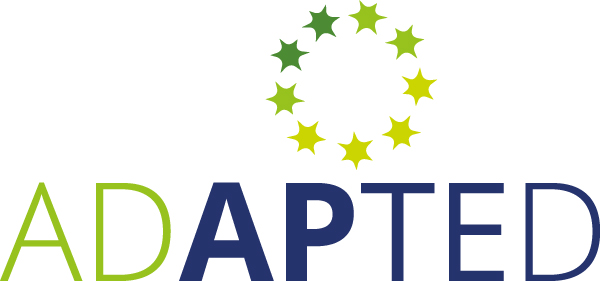Alzheimer’s disease (AD) affects over 35 million people worldwide and yet there are currently no medicines which slow down the progress of the disease. The ADAPTED project aims to boost the development of new medicines by investigating an area of AD research which has previously received little attention – the APOE gene. The APOE gene is a well-known risk factor for developing the disease, but precisely how this gene contributes to the risk of developing AD is not known. People who carry the APOE4 version of the gene have a considerably higher risk of developing AD. They also tend to develop the disease much earlier in life. However, the reasons for this are not well understood and therefore APOE has largely been ignored in the quest to find treatments for AD. By bringing together leading experts in a range of state-of-the-art technologies, including three research-intensive small and medium-sized enterprises (SMEs), ADAPTED hopes to gain better insights into the causes of AD, something that will in turn lead to better treatments for patients.
ADAPTED
Alzheimer's disease apolipoprotein pathology for treatment elucidation and development

FACTS & FIGURES
| Start Date |
|
| End Date |
|
| Call |
IMI2 - Call 5
|
| Grant agreement number |
115975
|
Type of Action:
RIA (Research and Innovation Action)
| Contributions | € |
|---|---|
| IMI Funding |
3 510 000
|
| EFPIA in kind |
3 286 740
|
| Total Cost |
6 796 740
|
Summary
Achievements & News
Sophisticated computing and human cell cultures are helping minimise animal use in drug development
July 2021
July 2021
IMI projects are using advanced computational analysis, human cell lines and tissues, and better models to ‘reduce, replace and refine’ the use of animals in research
more
New brochure: IMI – radical collaboration in action
December 2020
December 2020
A new brochure showcases success stories from IMI projects in infectious diseases, brain disorders, diabetes, cancer, and other areas.
more
Participants Show participants on map
EFPIA companies
- Abbvie Deutschland GMBH & Co Kg, Wiesbaden, Germany
- Biogen Idec Limited, Maidenhead, Berkshire, United Kingdom
- Janssen Pharmaceutica Nv, Beerse, Belgium
Universities, research organisations, public bodies, non-profit groups
- Agencia Estatal Consejo Superior De Investigaciones Cientificas, Madrid, Spain
- Erasmus Universitair Medisch Centrum Rotterdam, Rotterdam, Netherlands
- Fundacio Ace, Barcelona , Spain
- Klinikum Der Universitaet Zu Koeln, Cologne, Germany
- Universitatsklinikum Bonn, Bonn, Germany
- Universiteit Leiden, Leiden, Netherlands
Small and medium-sized enterprises (SMEs) and mid-sized companies (<€500 m turnover)
- Caebi Bioinformatica Sociedad Limitada, Sevilla, Spain
- Dc Biosciences LTD, Dundee, United Kingdom
- Mimetas BV, Leiden, Netherlands
- Modus Research And Innovation Limited, Dundee, United Kingdom
| Participants | |
|---|---|
| Name | IMI funding in € |
| Agencia Estatal Consejo Superior De Investigaciones Cientificas | 688 476 |
| Caebi Bioinformatica Sociedad Limitada | 282 062 |
| Dc Biosciences LTD | 186 514 |
| Erasmus Universitair Medisch Centrum Rotterdam | 420 500 |
| Fundacio Ace | 333 757 |
| Kite Innovation (Europe) Limited (left the project) | 37 913 |
| Klinikum Der Universitaet Zu Koeln | 244 812 |
| Mimetas BV | 305 102 |
| Modus Research And Innovation Limited | 110 337 |
| Universitatsklinikum Bonn | 429 850 |
| Universiteit Leiden | 470 677 |
| Total Cost | 3 510 000 |
Project leader
Margot H.M. Bakker
AbbVie Deutschland GmbH & Co. K.G.
Germany
Margot H.M. Bakker
AbbVie Deutschland GmbH & Co. K.G.
Germany
